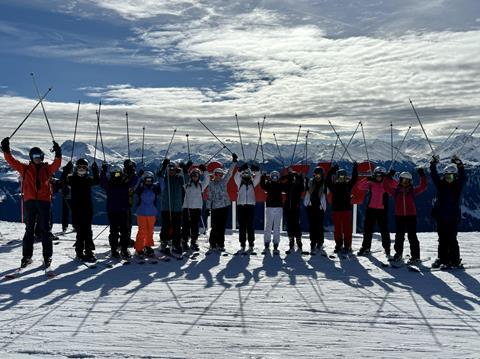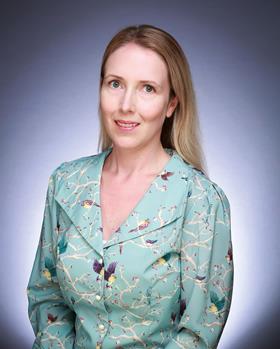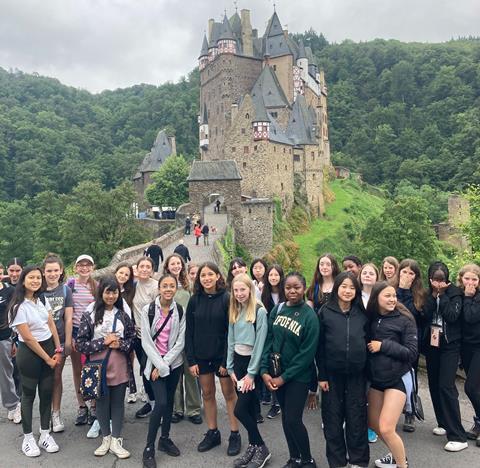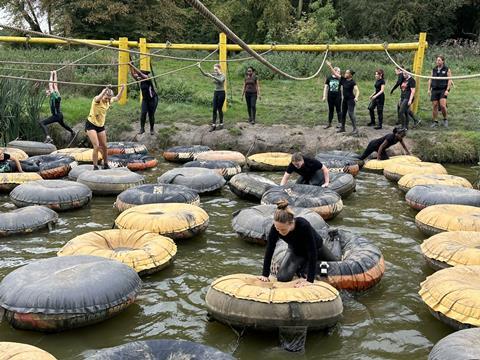Helen Riebold, assistant headteacher at Southend High School for Girls, on the most rewarding trip she organises and how to keep parents in the loop.

How did you begin your career in teaching and what led to your role as an EVC?
I began teaching in 2004 when I left university as a physics graduate. It’s the career I always wanted to go in to. I’m assistant headteacher and one of the responsibilities of that role is to be the educational visits coordinator. I’ve been doing this role officially since September 2023, but there was a handover period before that when the person previously in the role decided they would not be continuing.

The organisational aspect of it is something I was keen to do, and we have a very busy programme of educational visits at the school. I wan to make it as smooth as possible for the staff that are involved, as well as a very useful opportunity for the student experience.
Why is it important for Southend High School for Girls to get pupils outside of the classroom and on trips?
There is only so much you can do in the classroom, and we want students to be able to experience things first hand. It is really essential that students can develop as individuals beyond the classroom and experience what we are teaching them about.
What kind of trips do you organise?
We have around 70 trips throughout the course of a year for our Year 7 to 13s. We have curriculum-based trips like geography field trips that students must take part in, in order to gain the qualification. We also have super-curricular trips which go beyond the qualification that students are studying. For example, our sixth form students visit the London Galleries for art and the British Museum for classics and they go on conferences, including English and media studies.
We have a number of overseas trips, some of which are residentials. We take our Year 8s on a residential to Rhineland and our Year 7s to Saint-Omer in France for a day trip and our Year 10, 12 and 13 students visit Paris for a residential. Nuclear Races is a team building trip that our Year 12 students go on when they join the school, and it involves activities like running through mud and going up high ropes, so it is a wonderful opportunity for our students.

What would you say is your biggest challenge in getting children out on trips and how do you overcome this?
For us it is the administration around trips, but we are incredibly lucky, as we have a school support team who undertake a lot of this work for our teachers. They do a lot of organisation behind the scenes, things like booking tickets, liaising with providers, producing trip packs. They do a lot of the administration work which is really helpful and allows us to facilitate more trips than we would be able to otherwise.
How do you find new ideas for visits?
We are very lucky with our teaching and support staff who do a lot of networking themselves, so they know the sorts of events that are coming up and they are really keen to get students out of the classroom to experience the curriculum.
“Nuclear Races is a team building trip that our Year 12 students go on when they join the school, and it involves activities like running through mud and going up high ropes, so it is a wonderful opportunity for our students.”
How do you keep parents up to date with what’s coming up so they are able to consider the financial side of bookings?
We publish our trip programme in the summer term for the upcoming year so that parents can see what is available depending on the year group. We don’t publish the cost at that point because we might not necessarily have that information.
As the finalised details are made, we communicate to parents with the financial considerations in mind. We feel with this information, parents / carers can make a fully informed decision about which trips they want their child to participate in.

What is the most rewarding visit you help to organise?
For me the Year 12 nuclear races trip is probably the most rewarding because it happens in the first half term.
We have found that Nuclear Races is one of the absolute highlights for students. There are three activities for students to do, the high ropes, the secret nuclear bunker and the assault course.
They can accommodate an entire year group, so around 180 individuals go every year. They get to know their peers and put themselves out of their comfort zones and support and help each other in the activities, so it is a fantastic opportunity for them and extremely rewarding that students are able to get to know each other so soon into their sixth form journey.
Would you like to tell us about the work you do in organising educational visits? Get in touch with us by emailing editorial@schooltravelorganiser.com.










